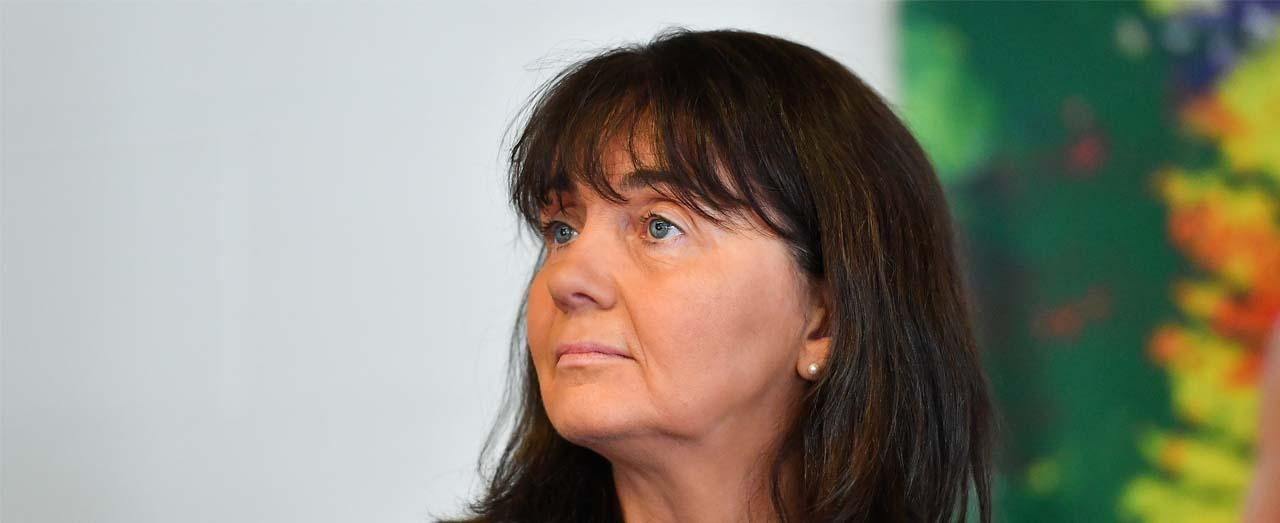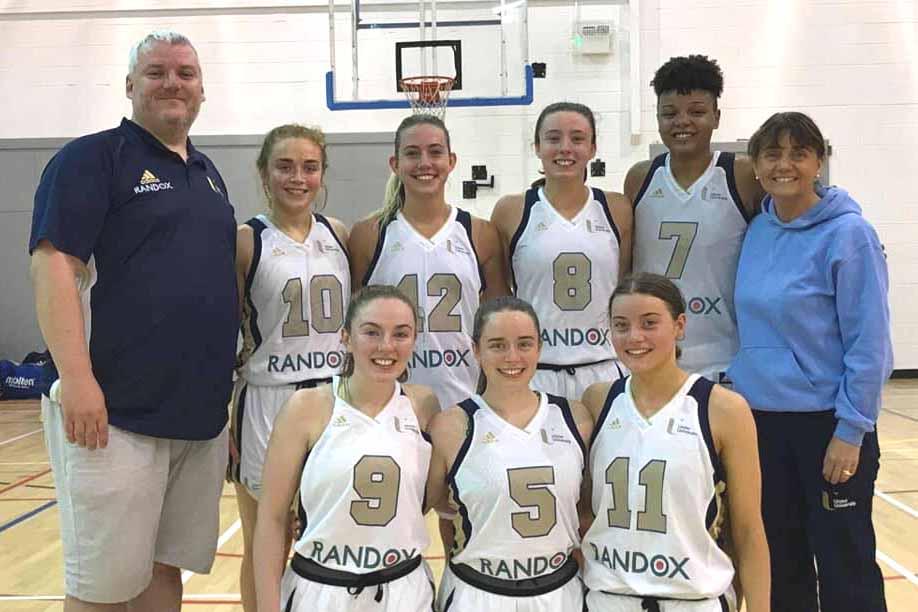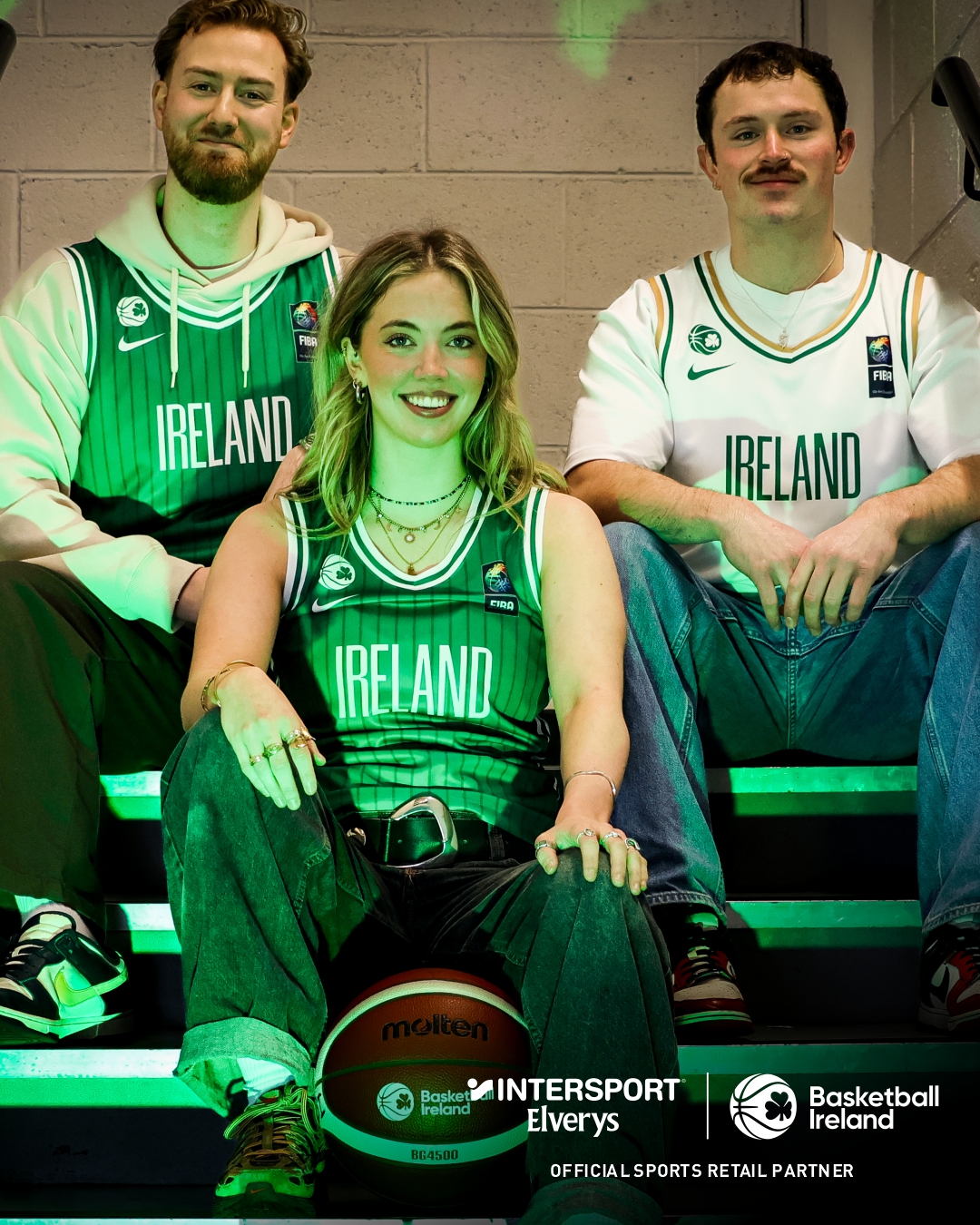Deirdre Brennan - UU Tigers BC

Coach: UU Tigers U18 and U20 women’s teams
Assistant coach: UU Women’s National League Division 1 team.
Interview
Can you talk us through your playing background?
I played schools basketball at St Louis Secondary School Monaghan, college basketball at Ulster University and National League basketball with Sporting Belfast BC. I played internationally at U15, U17, U19 and Senior Women’s level.
How did you get involved in coaching?
My Dad, whose background was in Gaelic Football, coached our Community Games team and, at that time, there were some boys in the parish that wanted to start playing so he asked me to take them as he didn’t have time as he was a farmer by trade. I was about 16 years old at the time.
What kind of teams have you coached?
When I left home for Ulster University I studied a degree in sport and trained to be a Physical Education teacher. I started coaching again in my early 20’s when I got a job in a girls secondary school in Belfast. I had then joined Sporting Belfast to play National League basketball, so myself and Rosie Ball (RIP) started a junior section to the club with some of the girls from my school and other girls from the few schools in Belfast that played girls basketball. Not long after, Gerry Fitzpatrick asked me to join his Irish Junior Women’s coaching team as an assistant and then his coaching team when he moved up to take the Irish Senior Women. I moved from teaching PE to a lecturing position in Ulster University in 1992 and was asked to coach the Men’s Varsity team in 1993. I continued to coach them until 2011, which involved a stint in National League Division One and the Men’s Super League. I coached the Northern Ireland University Men’s team in British University Games also. I stopped coaching in the men’s game after about 18 years when my daughters were coming close to playing age and I’ve been coaching junior girls basketball ever since. This past season I coached UU Tigers U18 and U20 women’s teams and was assistant coach to the UU Women’s National League Division One team.

Who would you say was a role model for you as a coach and why?
I would say I learned most about coaching from Barney Ball who was my National League coach at Sporting Belfast. He is an excellent technical coach and I learned a lot about teaching the game and the time and effort required to go into effective coaching. He was a very dedicated coach and studied the game. We would talk about coaching a lot, both the technical side and the process dimension.
What is the most important thing for you when coaching younger/teenage boys and girls?
The most important thing for me is for them to feel valued, to feel like they belong to the team. This is a lot harder to achieve than you would think, especially when you have a wide range of abilities, motivations and interest levels on one team. Talk to them, encourage them, be constructive, set them goals in practices and games, recognise effort as well as ability. Basketball is a very technical sport, so skill development takes time. Patience is key.
Have you any tips you'd like to share on keeping girls engaged in sport - particularly at the 14-18 year old age group?
Take your team to tournaments and on trips. Do things together as a team outside of basketball. Give them a voice so they have input into practices. Talk to them about their life outside of basketball. Many girls are dual players – support this (even though it’s hard when the other sport coach may not reciprocate!) – even if it means you lose them now and then to the other sport. It has to be more than about basketball, and we have a responsibility to teach players that there is so much to be gained from being involved in sport. Competitive sport will inevitably lead to players having to navigate their way through highs and lows, personal challenges, adversity, disappointment but also success, achievement, reflection and progress – sport is a microcosm of life, so players are able to develop and apply their experiences to life outside of sport. Also, enjoy the years where your date of birth matters because before you know it, you are 18 and in senior basketball! For the more talented underage players, know that transition to the senior game takes time. Don’t give up. Earn your stripes. It’s worth it.
Do you have a favourite drill you use for younger players to keep them engaged in the training session and if so, what is it?
I always use a lot of game play. It’s messy, but bottom line is kids come to play and love to play. Game play also allows players to understand better the need to drill for skill as they see its relevance to the game. Uneven sided games are very effective in enhancing opportunities of inclusion and decision-making. I love 55 – a 5 v 5 full court game with no dribbling. It’s great for basketball conditioning and you get to see who has great smarts. You get 10 points for a basket, 1 for pass, 5 for a steal, -5 for a foul. You can build in points for defensive and offensive boards too. You play first to 55. I also like full court 3 v 2; 2 v 1 or 2 v 1 in each half court; 3 v 3 v 3; 4 V 4 with wingers in full court and 3 v 0, 3 v 1 , 3 v 2, 3 v 3; 3 v 3 and 4 v 4 defensive games in half court. I also try to make drills competitive and set harder goals for the more able players (e.g. have to hit 8 shots v 6 shots) to level the playing field. I also like to announce a ‘Player of Practice’ at the end of sessions to reward the player who did the best job.
Any tips you would like to give to young coaches who are starting out?
Coaching is all about relationships. All the technical knowledge in the world will not make up for an inability to connect with your players. In coaching, you are always learning so don’t be afraid to ask for advice.
When you first stepped up to National League/International level, were you nervous about the step up and how did you deal with that if so?
As a player no, I was just very excited to play with the best players in the country and experience different coaching. As a coach when I stepped up, I felt I had very little to offer technically as I really had limited experience. I felt intimidated by the knowledge the more senior coaches had, so I struggled to find or use my voice. Conditioning was an area that they needed assistance with and I looked after that as I had a background in athletics as well as basketball so had a real interest in that side. I’m not sure what value I added if I’m honest. I certainly think I gained more from the coaching staff than they did from me, but given I was so novice I suppose that was to be expected.
What would you say to other female coaches who are considering moving up a level in their coaching careers?
Go for it and be aware of what it will take for you to commit. It takes more time than just practice time and game time as there is planning involved and film, which takes time. Make sure it works for you so you can sustain your involvement e.g. when we moved UUJ into Men’s Super League, the club agreed to move training times from 6pm-8pm to 8pm-10pm so I could coach. I needed to have the kids in bed before I could go to practice as I wasn’t prepared to sacrifice family time when the girls were so young.
How do you measure the success of a training session?
Every practice, we will have a session plan and associated goals. If we achieve our session goal/s, the session has been a success. Goals may be for players to be able to execute ball screen defence/s; be able to get ball over the half way line in 3 seconds in all games etc. Sometimes, my first goal is trying to make sure everyone turns up given competing priorities of schoolwork, other sports and family commitments!
How do you measure success in broader terms?
I measure success by making judgements on whether or not we as a team have achieved our potential in any given season. Winning cups and championships is not always a realistic goal based on your talent level, commitment level, context, resources etc.
How important do you think it is for coaches to keep learning and developing regardless of level of experience?
It’s imperative. It is a case of life-long learning. Coaching is contextual – it can differ depending on what teams you have – is it a new team to you, a different age group, different gender - all this leads to new challenges in coaching. You may find that you work better with a particular age group, competition level or gender. This is fine – it allows you to focus your coach development.
Have you noticed many cha
nges in Ireland in coaching over the years? If so, what?
I think there is more awareness of what quality and effective coaching is, but I’m not sure we do as good as job as we should at transferring this knowledge into practice, not least because it’s hard. The biggest change is the accessibility to coach education via social media platforms like twitter and YouTube, making coach development opportunities a lot more accessible, which is a real positive.
What changes would you like to see in basketball coaching in Ireland in the future?
I would love to see coach development higher on the agenda as the better our coaching is, the better our players are going to be. A Director of Coaching to lead the strategic development of coaching would be ideal. I do think there is more coaching conversations between coaches, which is positive, and a willingness to share experiences and knowledge. Paul Kelleher’s recent coaching initiative and the BI Women in Coaching initiative have been just super. I wish there was this when I was a younger coach!
What is the most valuable lesson you have learned as a player?
There is simply no substitute for hard work, particularly in the off season, and don’t ever let anyone tell you that you are not good enough.
What is the most valuable lesson you have learned as a coach?
I have more than one! Coaching is two-way - you can only coach players who want to be coached. No one player is ever bigger than the team. Talk to your players. Have a thick skin. Admit your mistakes. You cannot please everyone. Be honest with players. Be open to change. Always reflect.
Anything else you'd like to add?
Like playing, you can only get better at coaching if you practice it. Don’t be afraid to ask for a mentor, someone who is more experienced than you. Ask them to visit a practice or watch you take a game and ask for feedback. It’s good to have a critical friend like that. I still reach out to Barney Ball for conversations about coaching as he knows me well, my style of coaching etc so he is in a good position to give advice. I’m no genius coach but have experience so always happy to support anyone if they think it would be value.

